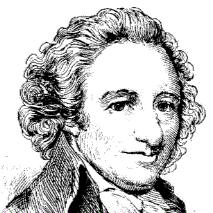Thomas Paine, can be thought of as America's first Whistleblower, a model for journalism, and his life presents some lessons and suggestions for enabling Journalism. That this should be obvious, is made visible in modern rewrites of his biography. I just read a bio on the US History webpage (https://www.ushistory.org/paine/index.htm), in which they nearly accuse him of abandoning the American Revolution. The authors write of him as leaving for Europe, “instead of continuing to help the Revolutionary cause...” But that is not what actually happened to him. When he left the United Colonies in 1791, the treaty of Paris, which ended the revolutionary war, had been ratified in 1784. So the US had won independence by the time he left the United States. Moreover, by 1791, Thomas Paine wasn't IN the government, but he was advancing an ideology. That ideology is Republicanism. No not the garbage pedaled by modern Tories that styles itself republicanism, but the real thing. He expresses the ideals of Republican thought best in his writings.
One of the best examples of the use of these principles is from Gutenberg:
“I consider the war of America against Britain as the country's war, the public's war, or the war of the people in their own behalf, for the security of their natural rights, and the protection of their own property. It is not the war of Congress, the war of the assemblies, or the war of government in any line whatever. The country first, by mutual compact, resolved to defend their rights and maintain their independence, at the hazard of their lives and fortunes; they elected their representatives, by whom they appointed their members of Congress, and said, act you for us, and we will support you. This is the true ground and principle of the war on the part of America, and, consequently, there remains nothing to do, but for every one to fulfil his obligation.” [https://www.ushistory.org/paine/crisis/c-06.htm]
To Paine, all nations, whatever officials claim to govern them, are a country with a “mutual compact” with the people of that country. In a democratic republican government officials don't rule “over” the people, their representatives rule in their name and ultimately at their direction. This is true of all governments, even dictatorships. The only difference is that dictators and oligarchs rule at the direction and oversight of a shrinking pool of people and with usurped powers and often by conning the people they claim to represent. The best government is good government and good government works with all the people, even ones who represent different factions. War is not supposed to be in pursuit of “private, separate advantage” I'm sure that Paine, like John Locke saw that as corruption and the basis of oppression and tyranny.
Paine wasn't a politician. He knew he was no good at politics. He was more prophet and gadfly than natural politician. He was the original whistleblower, a journalist and he struggled his whole life to work with publishers. He found them because well written truth is desired by people who also have honor and integrity.
Ultimately honor, integrity and principle were more important to him than even fame and fortune. Not that he didn't seek either, but the principle was more important than self aggrandizement for him. Modern Journalists, Activists and Patriots not entering government would be wise to study his example and follow it. Some bad Politicians are good prophets. It takes a particular skillset to run for office and be popular. The job of journalists is to oversee that process and ensure that promises made are documented and kept.
Lesson One: The law on Whistle-blowing and classification should privilege journalism as part of democracy.
Thomas Paine played a role as a whistleblower in the early 1780s. He worked as He was involved in exposing corruption around the secret money being given to support the Revolution, in contravention of French Treaty agreements, When his role in this was exposed, the congressional committee involved forced him to resign. They wanted to try to have him charged with Treason. But he had the evidence. This alone makes him our Countries First Whistleblower.
As usual I have a lot more to say...
[https://www.ushistory.org/paine/crisis/c-06.htm]

No comments:
Post a Comment